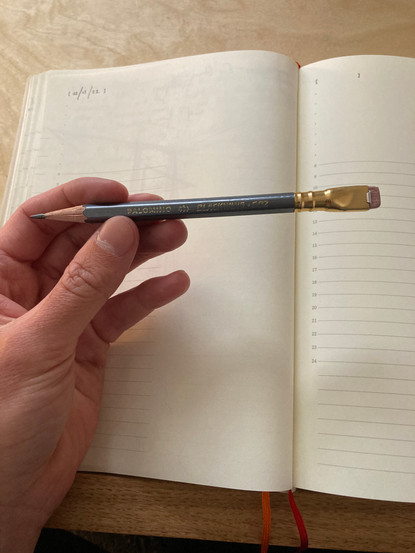The Dartington Experiment
- Gabriel Thomas Stevens
- Apr 23, 2021
- 5 min read
Updated: May 27, 2021

Magnolias in Bloom (21/04/21)
/ Tools
/ Germination of an Idea
(22/04/21)
During my residency at Dartington estate I hope to explore the gardens through sound recordings, film, photography and writing. As we reach the midway point of spring, everything is in a state of emergence. To paraphrase Craig Holdrege in ‘Resurgence & Ecology’, Rooted in the World: ‘A plant opens itself to its environment as a prerequisite for unfolding its life.’ (Holdrege, 2014 p. 43) How can I join this chorus of beginnings? How may I enter into a dialogue with the land?
On Wednesday afternoon, April 21st, I followed a series of slate tiles that read ‘children’s trail.’ They led me along an arching pathway of stone, through an alleyway of azaleas, until I reached the lawns below. That’s when I saw the Magnolia Steps and the wall that encloses the Whispering Circle. Fascinated by the care and attention to detail that has gone into creating the gardens, I began to think what it would be like to inhabit the spaces designed by Percy S. Cane, Beatrix Farrand and the landscape architects that came before them.
Inspired by Alice Oswald’s, Dart (a poem that captures the polyphonic voices of the River Dart) and Gabriela Torres Ruiz’s photographic collection, The Path of Least Resistance (which explores biomimicry through a series of diptychs) - I hope to create a body of work shaped by the topography of the land, the lengthening shadows of day and the more-than-human voices that exist on the estate. To delve deeper beneath the surface of everyday encounters and enter the storied landscape of the gardens.
To quote Stéphane Mallarmé in Le Livre: ‘Un livre ne commence ni ne finit; tout au plus fait-il semblant.’ [‘A book neither begins nor ends; it only pretends to do so.’] (Mallarmé, 1957 p. 24) Which leaves me wondering, how may I enter the gardens as a question? And in doing so, weave a narrative that grows with time…
/ Voices
Anne-Marte (06/05/21) - https://anchor.fm/gabriel-thomas-stevens/episodes/Anne-Marte-e10eceo/a-a5g8gj5
Sally Thorne (09/05/21) - https://anchor.fm/gabriel-thomas-stevens/episodes/Sally-Thorne-e10i2k2/a-a5gr0ng
Branwen Lorigan (12/05/21) - https://anchor.fm/gabriel-thomas-stevens/episodes/Branwen-Lorigan-e10tse9
Stephan Harding (12/05/21) - https://anchor.fm/gabriel-thomas-stevens/episodes/Stephan-Harding-e10ttd7
Michael Record (18/05/21) - https://anchor.fm/gabriel-thomas-stevens/episodes/Michael-Record-e11
/ Morphology
Shadows of Pine (01/05/21)
/ Footnotes
Mapping the topography of the estate through footsteps (08/05/21)
/ Dartington Archives + Notes
In Order of Appearance:
1. Letter by Dorothy Elmhirst, c. 1920s 7. Journalling in the Rain (11/05/21)
2. Essay by Percy S. Cane, 1954 8. Letter to Self (17/05/21)
3. Advert by Wilkinson Sword, c. 1950s 9. Maps of Rain, Whispering Circle (18/05/21)
4. Dartington Estate Garden Dept., c. 1928 10. Printmaking (06/05/21)
5. Dartington Estate Garden Dept., c. 1950 11. Showcased in Studio 20 (24/05/21)
6. Journalling in the Rain (10/05/21) 12. Showcased in Studio 20 (24/05/21)
/ Sketches
The Architect of Gardens
Last night I dreamt of two tigers
in the garden
eyes green as perennial
leaves
streaks of fire
in the long grass
body pressed into the
shadow of the land
I listen to
its heartbeat
a blackbird opens its wings
— a gold key in its beak:
cough it up, cough it out
not all things golden
belong to the sun
and there. it left me
rising towards the thick crown
of a champion tree
the tigers still hungry
the wishbone of Vitruvius
stuck in my throat.
Sickle Hand
A Dream (23/05/21)
To begin with there were four of us, sat on a raft.
One by one we were subsumed by the waves.
Alone, I watched the sunset in the west. Then a cloud spoke. It said, ‘you must turn your right hand into a sickle.’ And so I did.
When I looked down, my right hand was curved like a waxing crescent moon.
sickle
/ˈsɪk(ə)l/
noun: a short-handled farming tool with a semicircular blade, used for cutting corn, lopping, or trimming. --- Definition from Oxford Languages
I had to pare the poem down. Gather the harvest. A task in itself.
/ Trail

(Dartington Gardens illustrated by local artist James Stewart) | Key: __ = songline
/ Reflections
(on writing The Gardener) Reading the works of Percy S. Cane was a great starting point. His lecture on The Gardens at Dartington made me look at the estate in a different way. During the week I often went walking and compared what I saw to the extensive notes he had made back in 1954.
I then began to visit the gardens at night. First, on May 11th for the new moon. And again on May 26th for the full moon. In tandem with my visits to the estate, I began to collect ‘voices’ through sound recordings, conversations, photos and a visit to Devon Heritage Centre in Exeter.
In the past, I have compared writing poetry to an extended form of daydreaming. And in many ways, The Gardener was a walk along the fold of a dreamlike state. Sat at a desk, a writer must sift through memories, imagination, conversations and experiences. But the room is quiet. The sound of pressed keys the only accompaniment to silence.
On Monday afternoon, May 17th, I went for a walk along the glade. As I followed the bank down towards the east, I saw something fall from the sky. It was a slow worm about the same length as my hand. I crouched down to take a photo of it. A few seconds later the slow worm’s tail landed on my back. I looked up. But all I could see was the silhouette of a hazel pine. I thought back to the dream I’d had at the start of the course that became the poem, The Architect of Gardens. From the sixth-stanza it reads:
a blackbird opens its wings
— a gold key in its beak:
cough it up, cough it out
not all things golden
belong to the sun
and there. it left me
rising towards the thick crown
of a champion tree
The key. The gardens had made an offering. Prior to the poem, I had written in my journal: we must dream of the land, until the land dreams us. And here I was being dreamt up…
The slow worm goes by many names: deaf adder, blindworm, slowworm or regionally, a long-cripple, to distinguish it from the Peloponnese kind. Deaf, blind, cripple. I could relate.
How can you hear the song of a bird or see a flower that remains nameless to you?
If I was to write about the gardens, I would have to learn to see, to hear and to feel. To occupy, as Henri Pousseur (cited by Umberto Eco in The Open Work, 1962) once said, ‘the focal point of a network of limitless interrelations’.
However, as the end of Module 1 approached I was presented with a new challenge - time. The Arts School has its schedule. The garden has its seasons. But what is the seasoned time of a poem, each a world unto itself?
So here, I make an offering to you, slowworm. Please accept it as a gesture - a sign of respect. I promise to return to the gardens and pay closer attention to the land; to listen to the present moment and embrace what cannot be done 'in time'; to cough up the key… because not all things golden belong to the sun.
/ Reading List

(to be continued...)














































































Comments